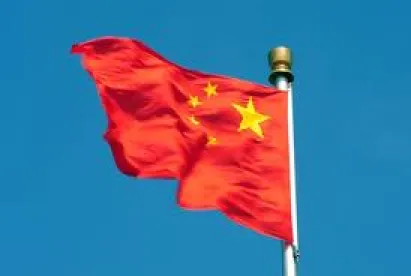Since 2010, China’s State Administration for Industry and Commerce (SAIC) and the State Council Legislative Affairs Office (SCLAO) have been revising China’s Anti-Unfair Competition Law of 1993 (AUCL). This February the SCLAO released a draft revision of the AUCL for public comment. In general, the AUCL is broad, covering unfair trade practices that relate to intellectual property rights, anti-corruption and antitrust. Click here for the unofficial translation of the draft revision of the AUCL. Various organizations such as the American Chamber of Commerce, Beijing and American Bar Association will be submitting comments on behalf of companies and law firms, as well as other interested parties.
The SCLAO points out in its explanatory notes that the current revision of the AUCL is meant to make the AUCL and the Anti-Monopoly Law (AML) that came into effect in 2008 more compatible. Consequently, articles governing subject matter covered by the AML were deleted. These articles relate to the conduct of public utilities and state-owned entities (now covered by Art. 7 of the AML), selling at below cost (now covered by Art. 17(1) and (2) of the AML) tying (now covered by Art. 17(5) of the AML), and abuse of administrative power (now covered by Art. 32-37 of the AML). Going forward there should be less ambiguity as to which law applies in these situations.
However, there may still be some overlap and confusion as to which law applies to complaints for bid rigging. The revised AUCL (Article 12) retains the prohibition against bid rigging even though the AML covers bid rigging in its provision against cartel agreements (Article 13 AML). The decision may boil down to the type of penalties related to bid rigging: parties complaining about possible bid rigging will most likely seek the harshest penalties. Article 25 of the revised AUCL lists both monetary civil penalties as well as criminal liability if the conduct constitutes a crime (this clause is vague as is common in Chinese legislative drafting). However, unlike the AML, this provision of the revised AUCL does not include the possibility of mitigation of penalties. For example, the two agencies that have authority to investigate cartel activities, the SAIC and the National Development Reform Commission, have procedural regulations related to the AML that deal with leniency in the context of cartels: if a party self-reports and provides information that is helpful for investigation then that party can either be exempt from punishment or its punishment can be mitigated. A the very least, the co-existence of bid rigging provisions in the AUCL and the AML may require more strategic planning on the part of parties that are participating in questionable bidding activities, in particular, whether or not to apply for leniency under the AML.
The revised AUCL includes a new article that is applicable to companies that do not dominate a market but have a “comparatively advantageous position” (Article 6 of revised AUCL). “Comparative advantageous position” is described as the situation where companies have “advantageous” positions in terms of, for example, capital, technology, market access, distribution channels, and where the trading party depends on this company and cannot easily switch to another company. It is a violation for companies in such an advantageous position to do the following:
-
without justification, restrict with whom the trading party does business;
-
without justification, designate the products that the trading party should purchase (thus restricting the trading party’s choice of products);
-
without justification, make restrictions in the trading terms and conditions that relate to the trading party and the party with whom it is doing business;
-
abusively overcharge or unreasonably demand trading party(ies) to offer other economic benefits; or
-
request other unreasonable trading terms.
Terms such as “advantageous” and “abusive” are not defined, and arguably there may be no objective standards for determining whether a company qualifies as holding a “comparative advantageous position.” This concept is similar to the Japan Fair Trade Commission’s concept of “abuse of superior bargaining position”(found also in the antitrust laws of Germany and Korea). Hopefully SAIC will issue subsequent guidelines to shed more light on how this article will be enforced and at the very least define these terms so that there will be less risk of this article being misused either by competitors or disgruntled contract-partners.
Finally, another revision that is relevant to all issues covered by the AUCL in essence gives investigative powers to all levels of the SAIC at or above county level as well as relevant departments of other administrations when other laws are also applicable. Ideally, there should be an internal system that requires approval from the headquarters of the SAIC (or other administrations if other laws apply) before investigations are initiated. For example, in the AML it states that before investigations are initiated, “a written report must be submitted to the principal officials of the Anti-Monopoly Law Enforcement Agency for approval”(Art. 39). In practice, regional offices of SAIC seek approval from central headquarters of SAIC before investigations are opened. Without such an approval system, the enforcement agency may find itself inundated with cases, and its resources stretched beyond its limits. Moreover, companies may well be wasting time and money defending themselves against frivolous or badly formulated charges.
The present draft of the revised AUCL will no doubt undergo more changes, but is not expected to deviate too much from its present form, as this revision was released by the SCLAO as opposed to the SAIC.



 />i
/>i
